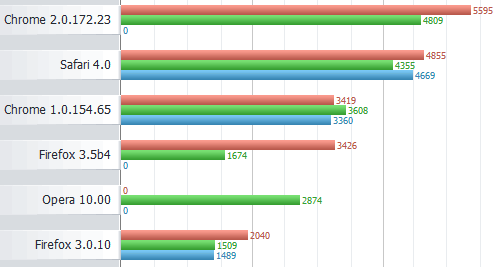Given that browsers are usually sold on the premise of being more secure, stable and functional, the actual rendering or execution speed of a browser is often overlooked by most. Google put a lot of weight into the efficiency of Chrome's Java execution, and yet it has not managed to make a significant dent in the share of either of the two current kings - Firefox and Internet Explorer.

Futuremark, the same people behind the popular graphics benchmarking software 3dMark, have put together a new set of metrics that stress test your browser and see how it compares to others worldwide. It has been under beta for a while, and as of today has left that stage and become a finished product. Were this five years ago, you might question the point behind it. But today the browser can certainly have an impact on how fast your browsing experience feels. The more interactive content that becomes available, the more important browser efficiency will come to be as well. If it takes five times as long to parse a page than it does to download the content on it, what good is a faster Internet connection doing you?
With just a short list of initial results, Peacekeeper claims that Chrome wins the speed crown, followed up by Safari - both of which apparently put even the latest versions of Firefox and IE to shame. You can read more about Peacekeeper on this press release or test your own browser using Peacekeeper.